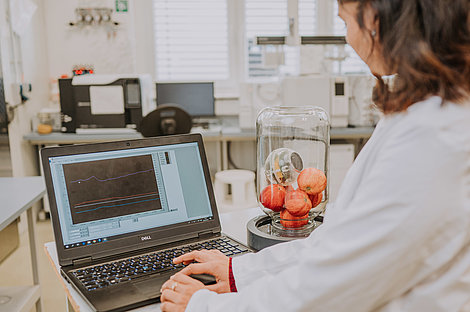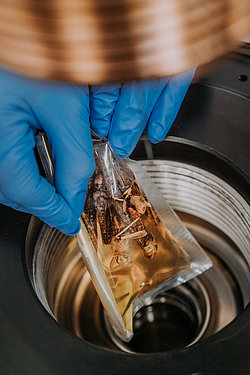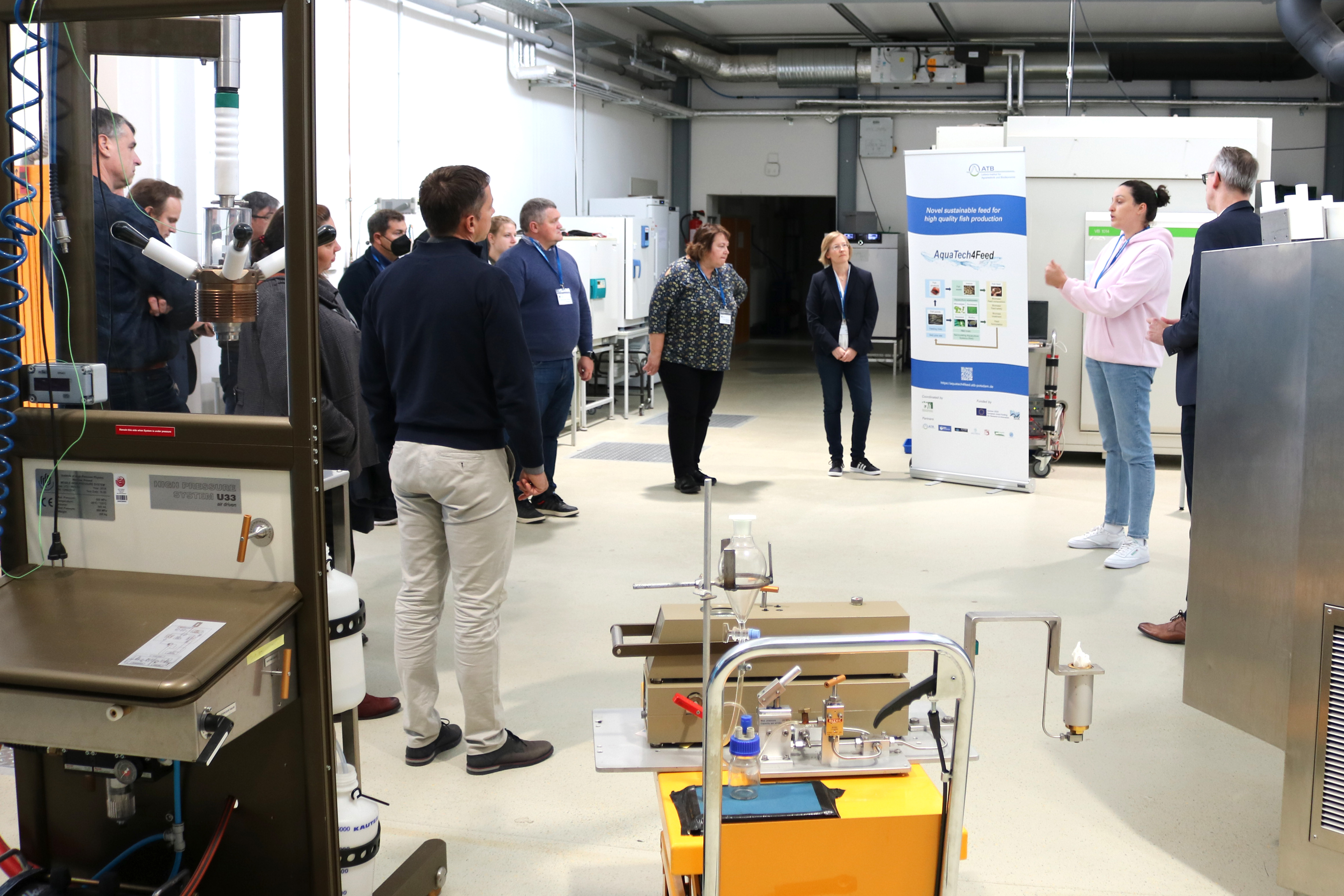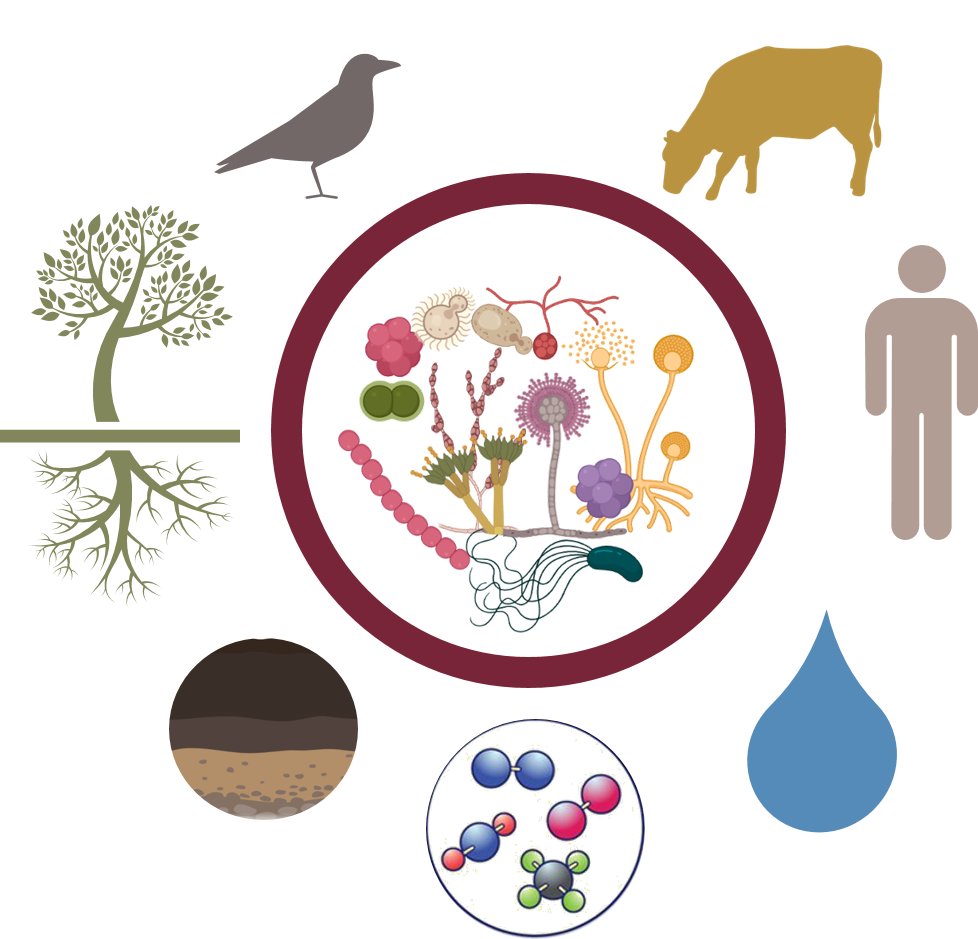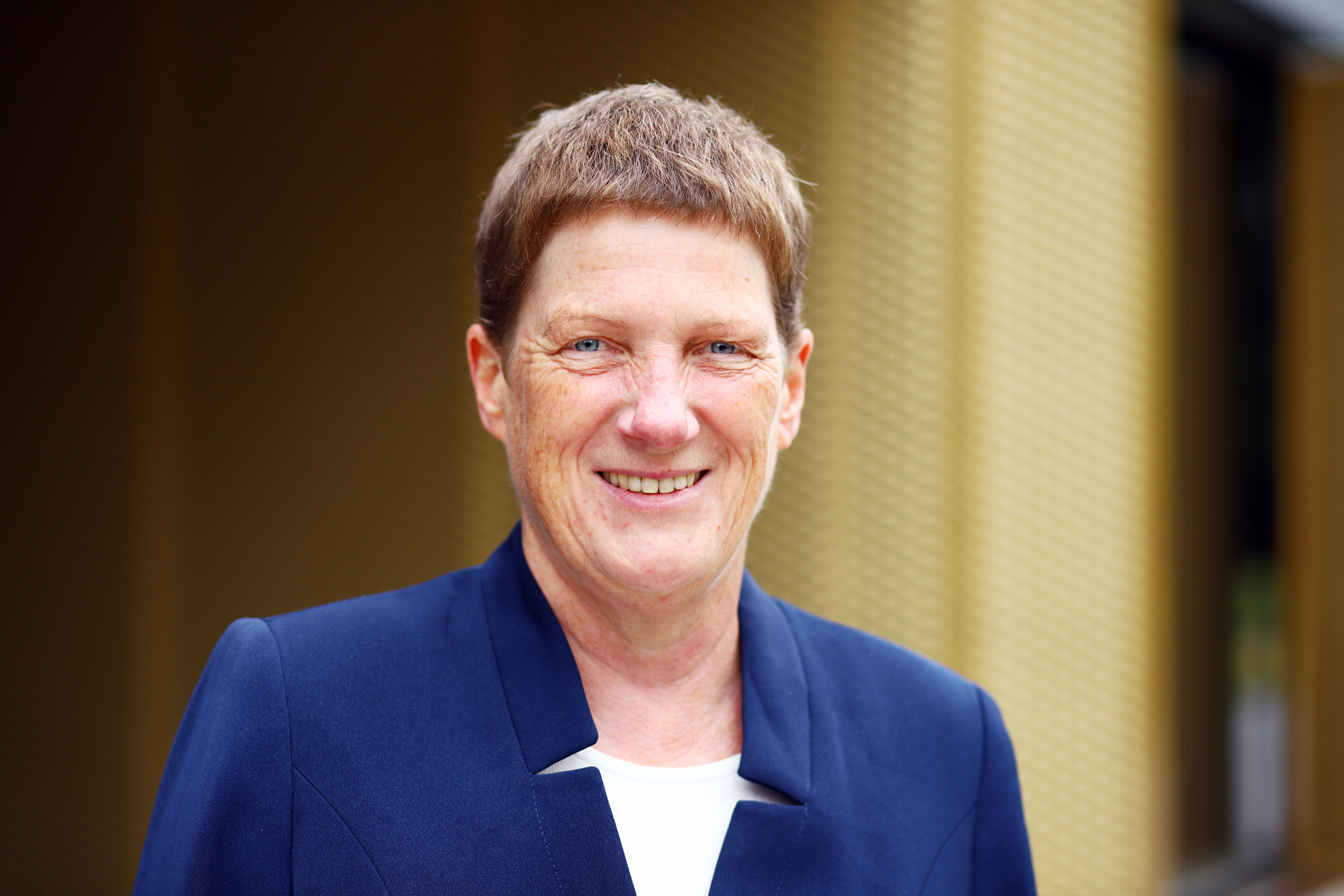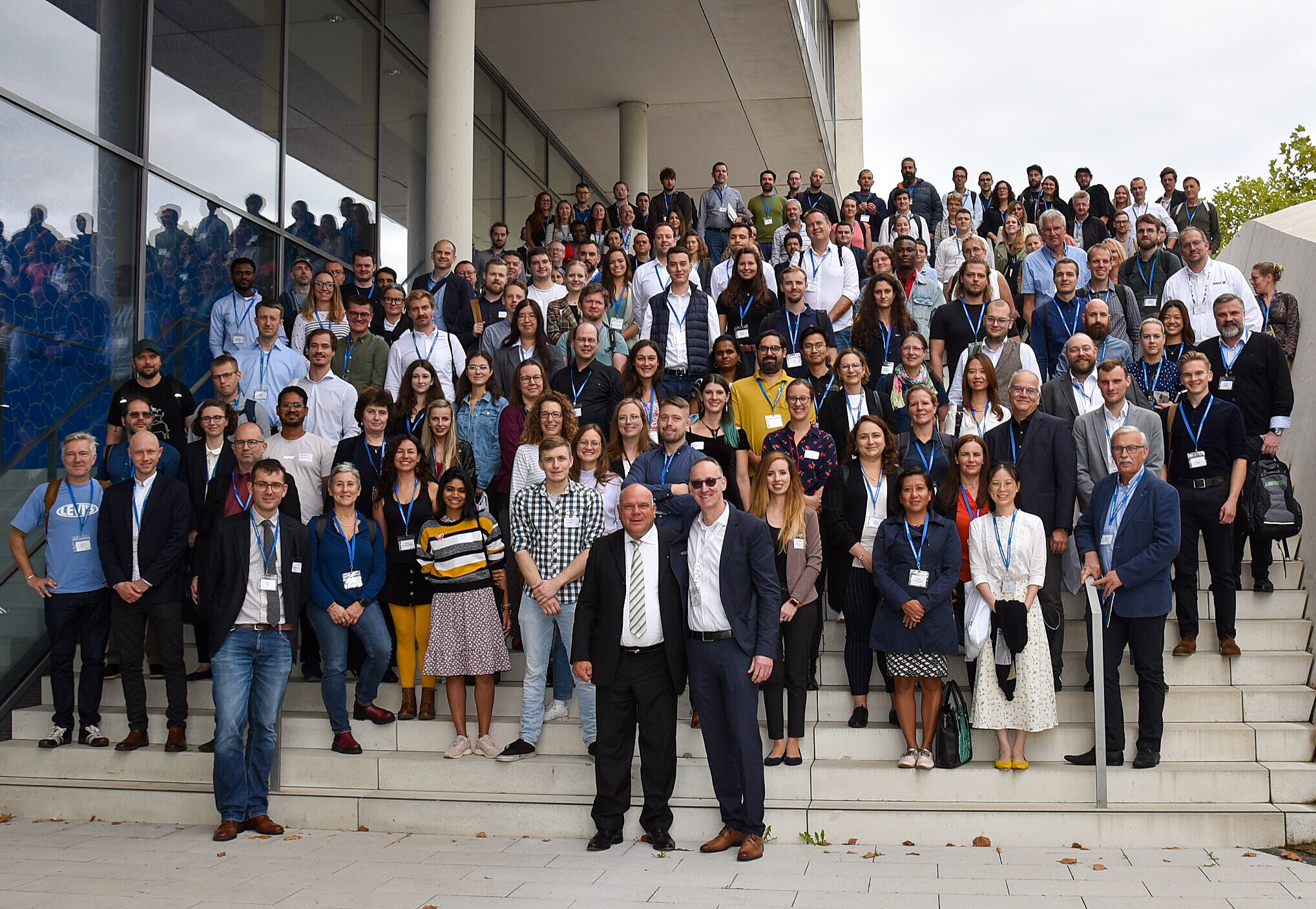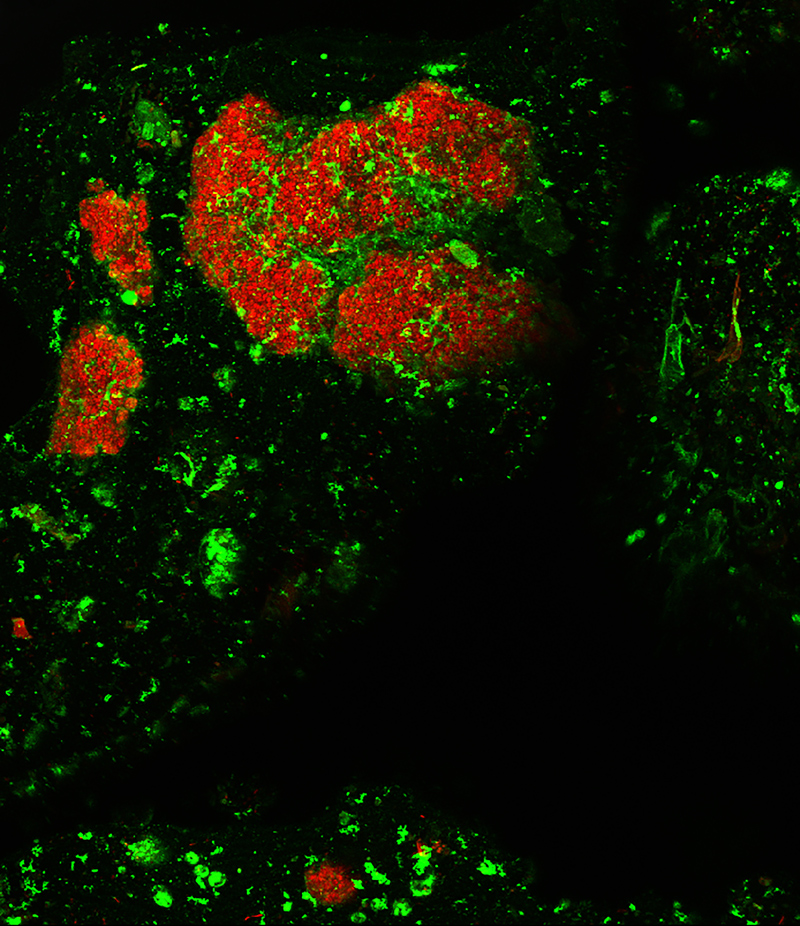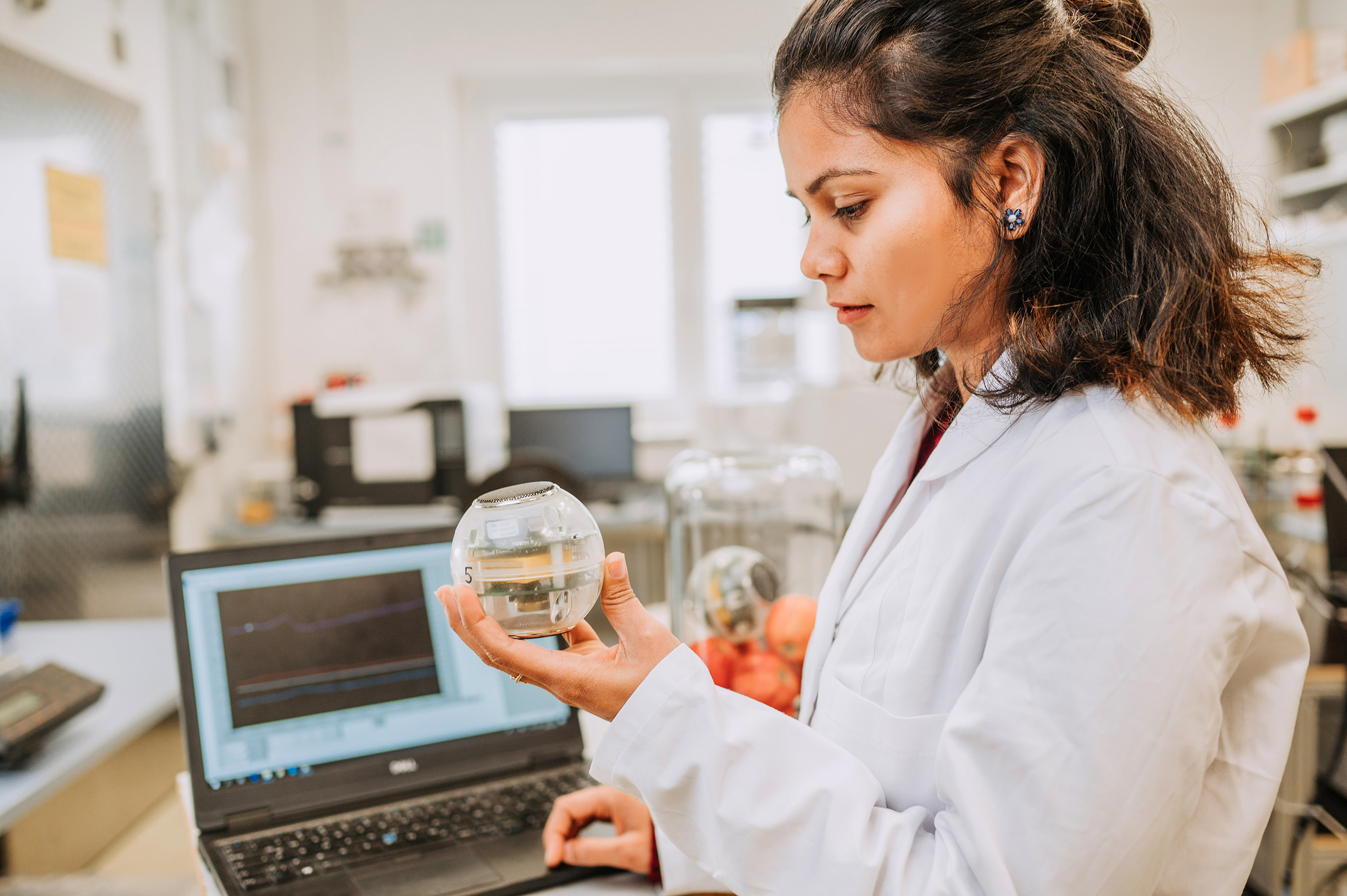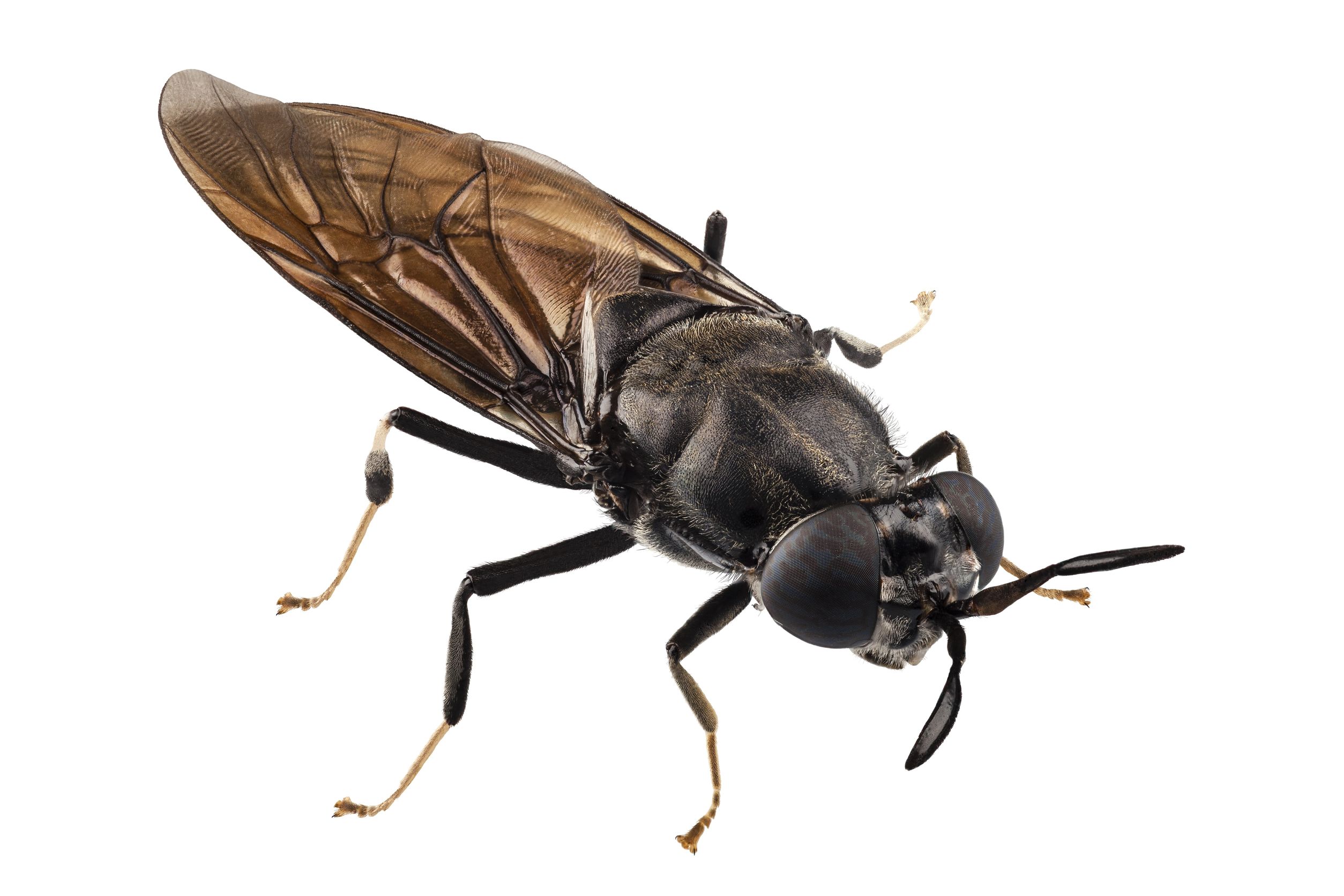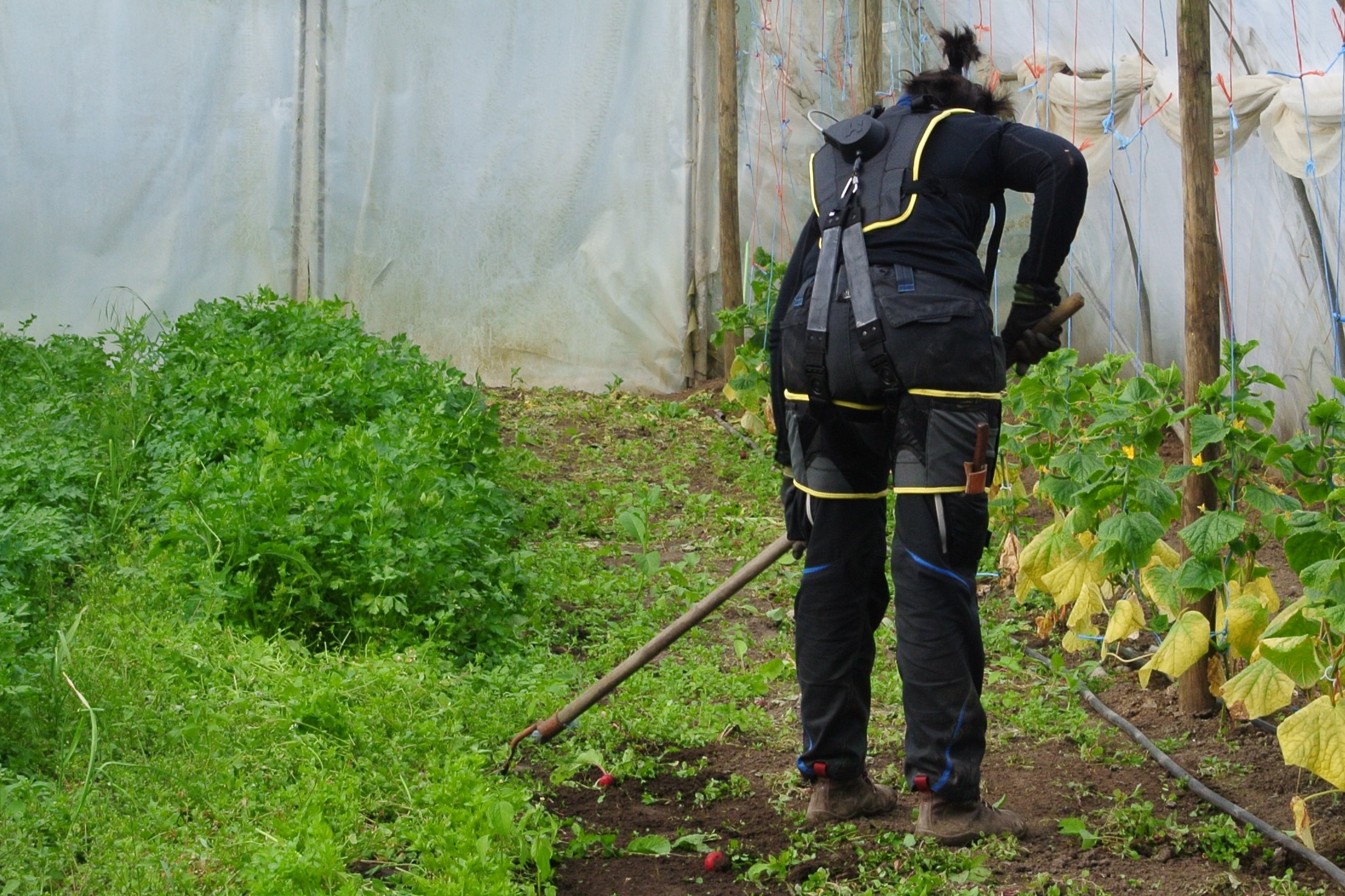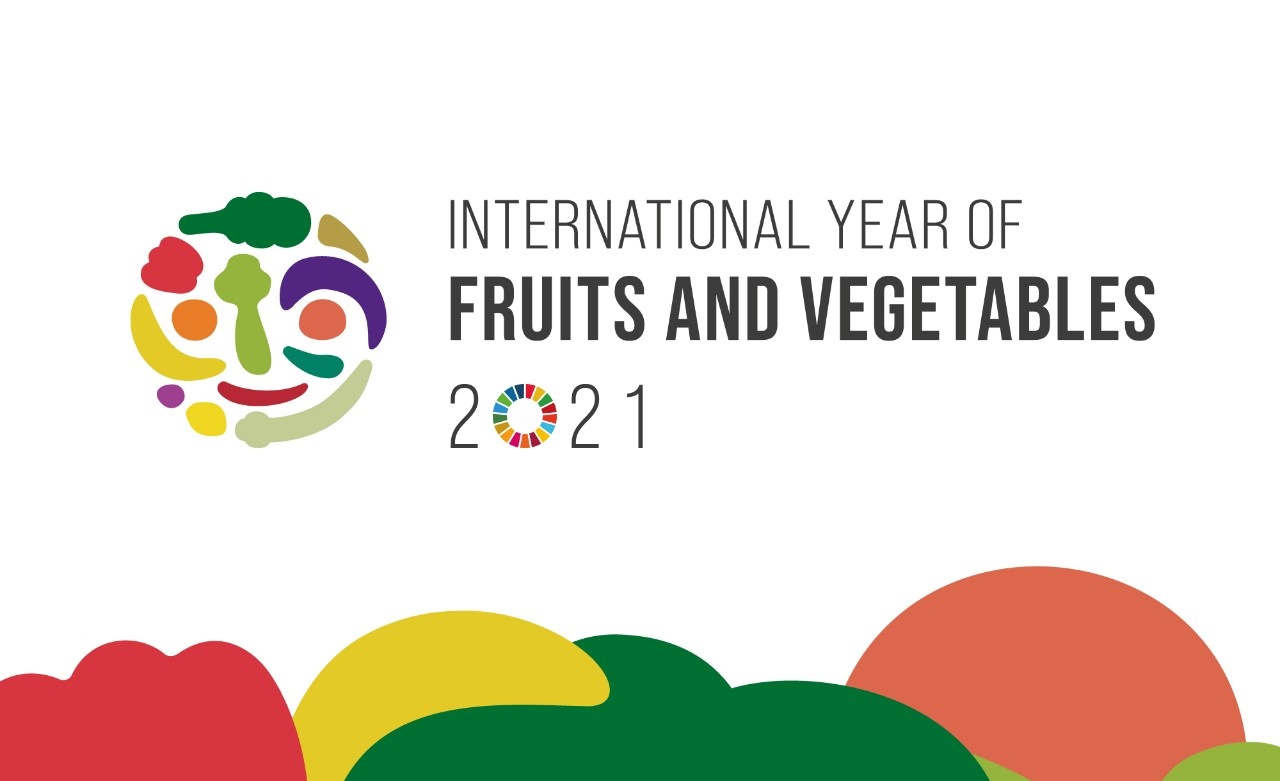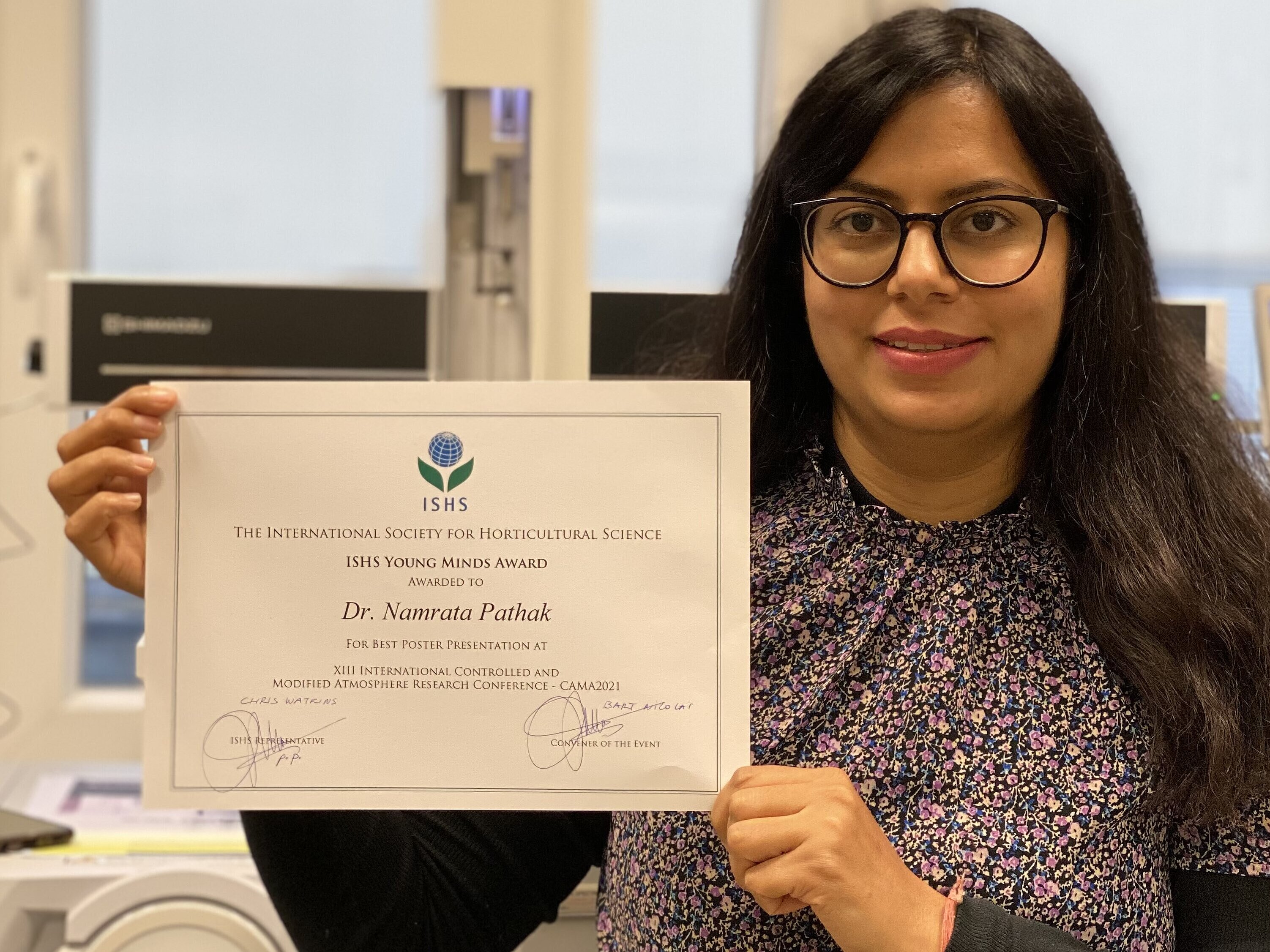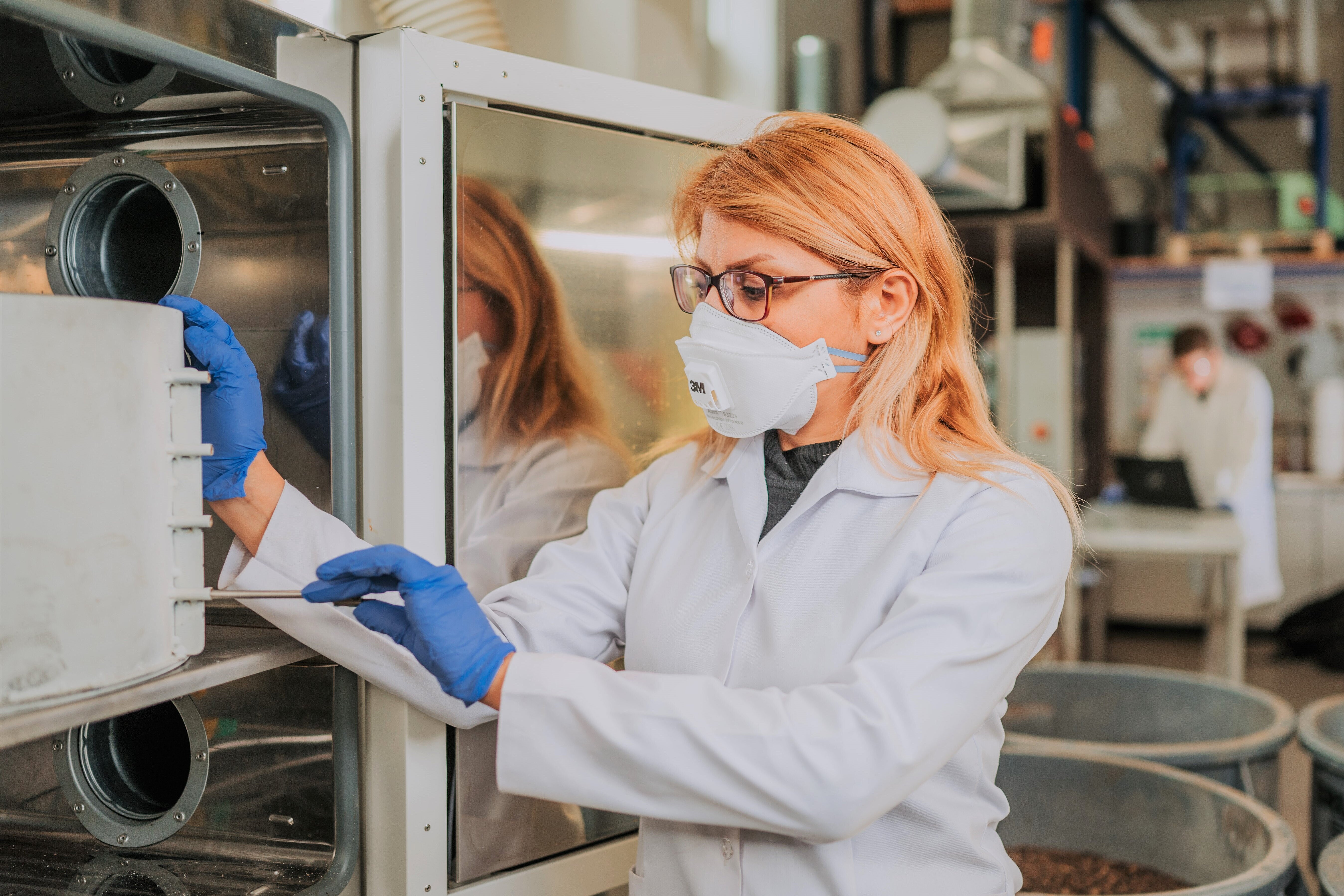Nutrition for humans and animals - gentle processes from harvest to consumption
The projected growth of the world's population to more than nine billion people by 2050 and other factors will entail changes in food production, global supply chains, the international economy, and the global food culture. With regard to global food security, our research work is particularly focusing on reducing losses and using by-products and alternative bioresources in order to promote the required sustainable intensification of bio-economic food production and to meet the needs of a dynamic consumer culture - without losing sight of the welfare of public health and the environment.
The impact of food production, processing, distribution and disposal accounts for about one third of global CO2 emissions - a large part of these emissions are related to food production, but the share of emissions caused by processing, distribution, disposal and consumption is steadily increasing. In this context, we design sustainable processes that have a targeted effect on the biosystems involved in food (micro-organisms, plants, animals, humans) and enable the realization of partially contrary process objectives in the post-harvest chain.
In line with the concept of circular bioeconomy, we address complex scientific questions relating tasks between primary production and processing of food and feedstuffs (e.g. fruit, vegetables, cereals, herbs, spices, milk, insects), thereby considering the potential of the residues produced in the context of the material and energetic use of biomass.
We develop tailor-made physical, physico-chemical and biological processes, taking into account important food ingredients, microbial systems, the properties of the products, as well as production-dependent working conditions and environmental influences. With innovative and interdisciplinary approaches as well as specific control and regulation strategies we contribute to the improvement of quality and safety throughout all areas of future food production.
Perishables
With a view towards sustainable intensification, we examine the production chain of fresh and largely unprocessed cellular food matrices and, based on batch- and product-specific process design and basic product-process interactions, we develop integrated approaches for loss minimization in the postharvest sector. Gentle preservation methods (e.g. non-thermal decontamination, cooling, drying, packaging) are of key importance during postharvest processing.We characterize microbiological, physiological and biophysical product properties in interaction with the respective process in order to develop sensors, adaptive processes and corresponding control and regulation strategies.
Based on the specific product knowledge, we create conditions for a sustainably intensive production of high-quality food and feed by means of model-supported and quality-optimized process design. Compiling time- and location-resolved information on product status along the entire value chain taking advantage of our expertise in data science enables us to create the tools for the targeted and long-term redesign of production systems.
Functional food ingredients
Considering the increasing demand in protein supply for humans and animals and the resulting research requirements, we are focusing intensively on the exploitation of alternative protein sources for food and feed production. We are investigating novel or hitherto rarely considered bioresources (insects, hemp, algae, etc.) and are developing holistic value-added concepts for future bio-economic production, which also take into account the use of other components such as lipids and polysaccharides during preparation and processing. For this purpose we employ tailor-made process modules and innovative non-thermal processes (high-voltage pulses, ultrasound, isostatic high pressure, cold atmospheric pressure plasma) and optimize conventional processes (drying, fermentation). Our research into product-process interactions and the measurement of structure- and process-related physicochemical and techno-functional properties provide an essential basis for the development of innovative, sustainable and product-friendly processes and new types of combination processes. We strategically combine the key topics of food and feed and interlink the cross-departmental and cross-research programme processing of systemic research issues.
To the team of the research program 'Quality and safety of food and feed'
Forschungsprojekte
-
By means of a networking and exploratory trip to Asia, the cooperation with excellent partners in Malaysia, Thailand and Hong Kong in the field of post-harvest technologies for fresh vegetable products is to be sustainab…
-
One of the challenges of the food packaging industry is the demand to preserve food products and extend shelf-life. With improved shelf-life other problems arise such as the formation and accumulation of undesirable gase…
-
The present project focuses on the production of high-quality, fresh horticultural products and at the same time meets the demand for an efficient use of scarce fresh water resources. The project goal is to develop an in…
-
The project is about the extent to which antibiotic-resistant, pathogenic bacteria from manure (poultry) released into the environment by spreading with dust emissions from agricultural land.
-
The CATCH experiment aims at developing a flexible, cost-efficient and reconfigurable/scalable hortibotic outdoor solution for automated harvesting in challenging natural conditions by addressing critical problems, such …
Alle Projekte aus dem Forschungsprogramm Qualität und Sicherheit von Lebens- und Futtermitteln
Publikationen aus dem Programm
- Johne, R.; Wolff, A.; Gadicherla, A.; Filter, M.; Schlüter, O. (2021): Stability of hepatitis E virus at high hydrostatic pressure processing. International Journal of Food Microbiology. (2 Februar 2021): p. 109013. Online: https://doi.org/10.1016/j.ijfoodmicro.2020.109013 1.0
- Jambrak, A.; Ojha, S.; Seremet, D.; Nutrizio, M.; Maltar-Strmecki, N.; Valic, S.; Gajdos Kljusuric, J.; Brijesh, T. (2021): Free radical detection in water after processing by means of high voltage electrical discharges and high power ultrasound. Journal of Food Processing and Preservation. (2): p. 1-15. Online: https://doi.org/10.1111/jfpp.15176 1.0
- Zhao, Y.; Ojha, S.; Burgess, C.; Sun, D.; Tiwari, B. (2021): Inactivation efficacy of plasma-activated water: influence of plasma treatment time, exposure time and bacterial species. International Journal of Food Science & Technology. (2): p. 721-732. Online: https://doi.org/10.1111/ijfs.14708 1.0
- Luca, A.; Edelenbos, M.; Mahajan, P.; Petersen, K. (2021): Modified humidity packaging of potted roses. Scientia Horticulturae. (3): p. 109697. Online: https://doi.org/10.1016/j.scienta.2020.109697 1.0
- Mahajan, P.; Zude-Sasse, M. (2020): Preface to the FRUTIC-2019 Symposium. Journal of Applied Botany and Food Quality. (15333): p. 121-121. Online: https://doi.org/10.5073/JABFQ.2020.093.015 1.0
- Ojha, S.; Bußler, S.; Schlüter, O. (2020): Food waste valorisation and circular economy concepts in insect production and processing. Waste Management. (December 2020): p. 600-609. Online: https://doi.org/10.1016/j.wasman.2020.09.010 1.0
- Adamseged, M.; Grundmann, P. (2020): Understanding Business Environments and Success Factors for Emerging Bioeconomy Enterprises through a Comprehensive Analytical Framework. Sustainability. (21): p. 9018. Online: https://doi.org/10.3390/su12219018 1.0
- Raut, S.; von Gersdorff, G.; Münsterer, J.; Kammhuber, K.; Hensel, O.; Sturm, B. (2020): Impact of Process Parameters and Bulk Properties on Quality of Dried Hops. Processes. (11): p. 1507. Online: https://doi.org/10.3390/pr8111507 1.0
- Ziegler, T. (2020): Primary energy demand and energy costs of fixed-bed drying using the example of chamomile flowers. Drying Technology. (4): p. 434-447. Online: https://doi.org/10.1080/07373937.2019.1580290 1.0
- Weindl, I.; Ost, M.; Wiedmer, P.; Schreiner, M.; Neugart, S.; Klopsch, R.; Kühnhold, H.; Kloas, W.; Henkel, I.; Schlüter, O.; Bußler, S.; Bellingrath-Kimura, S.; Ma, H.; Grune, T.; Rolinski, S.; Klaus, S. (2020): Sustainable food protein supply reconciling human and ecosystem health: A Leibniz Position. Global Food Security - Agriculture Policy Economics and Environment. (June): p. 100367. Online: https://doi.org/10.1016/j.gfs.2020.100367 1.0
More publications of the research program

